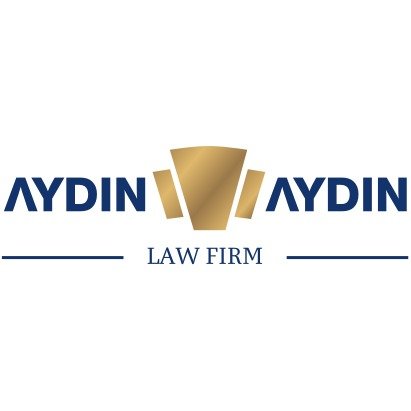Best Debt Capital Markets Lawyers in Istanbul
Share your needs with us, get contacted by law firms.
Free. Takes 2 min.
List of the best lawyers in Istanbul, Turkey
Legal guides written by Tekin Law Firm:
- Arbitration in Turkey
About Debt Capital Markets Law in Istanbul, Turkey
Debt Capital Markets (DCM) in Istanbul, Turkey, are a crucial part of the country’s financial sector. DCM refers to the area of finance that deals with the issuance and trading of debt securities, such as bonds, notes, and other financial instruments. In Turkey, Istanbul has positioned itself as a significant international financial hub, featuring a sophisticated regulatory framework and infrastructure supporting the issuance, listing, and trading of both domestic and international debt instruments. The presence of Borsa Istanbul, the country’s main securities exchange, and several local and international financial institutions contribute to a dynamic debt capital market environment.
Why You May Need a Lawyer
Legal assistance in Debt Capital Markets can be essential for a variety of reasons, including:
- Issuing bonds or other debt instruments, whether as a corporate, financial institution, or governmental entity
- Ensuring compliance with Turkish laws and regulations on the issuance and trading of debt securities
- Navigating complex documentation requirements and disclosure obligations for public or private offerings
- Negotiating terms with underwriters, investors, and trustees
- Assisting with cross-border transactions or listings at Borsa Istanbul
- Dealing with restructuring or refinancing existing debt instruments
- Resolving disputes related to the servicing or enforcement of debt securities
- Understanding taxation, registration, and reporting implications of transactions
Given the complexity and regulatory scrutiny involved, expert legal advice helps to mitigate risks and ensure transactions proceed smoothly and lawfully.
Local Laws Overview
The regulatory framework governing Debt Capital Markets in Istanbul and across Turkey is primarily shaped by:
- The Capital Markets Law (No. 6362), which sets the foundation for all capital markets activities
- Communiqués issued by the Capital Markets Board of Turkey (CMB), which provide detailed rules on the issuance, registration, and trading of securities
- Borsa Istanbul listing requirements for debt instruments to be traded on the exchange
- Regulations regarding prospectus requirements and material event disclosures
- Turkey’s regulations for public and private placements and rules affecting international issuances
- Clearing and settlement regulations, including those administered by the Central Registry Agency (MKK)
- Rules on foreign investor participation and capital movement
Participants must adhere to these laws and regulations, which are regularly updated to harmonize with international best practices.
Frequently Asked Questions
What is a debt security?
A debt security is a financial instrument where the issuer owes the holders a debt and is obliged to pay interest and repay the principal at maturity. Common examples include bonds and notes.
Who regulates Debt Capital Markets in Istanbul?
The primary regulator is the Capital Markets Board of Turkey (CMB), which supervises and enforces securities laws and regulations.
Can foreign investors participate in Turkey’s Debt Capital Markets?
Yes, foreign investors can and do participate. There are procedures and regulations to follow, but there are no outright prohibitions against foreign involvement in debt securities issuance or trading.
What is the process for issuing bonds in Turkey?
Issuing bonds usually requires the preparation of a prospectus, approval from the CMB, and registration with the Central Registry Agency. For exchange-listed bonds, Borsa Istanbul listing approval is also required.
What are the key documentation requirements?
Key documents include the prospectus or issuance document, offering circular, agreements with underwriters, and trustee documentation.
Are there regulatory limits on interest rates or maturities?
There are no fixed limits for most private issuers, but market conventions and disclosure obligations apply. However, certain issuers, such as banks, may face additional regulatory requirements.
What happens if an issuer defaults on a bond?
Bondholders typically have recourse through legal enforcement of their claims, which may include court proceedings or agreed-upon alternative dispute mechanisms specified in the issuance documents.
Is it possible to issue sukuk (Islamic bonds) in Turkey?
Yes, Turkey has a developed legal and regulatory framework for the issuance of sukuk, consistent with Islamic finance principles.
Are there taxation considerations for debt securities?
Yes, there are tax implications, including withholding tax on coupon payments and other taxes, depending on the status of the investor and the type of instrument.
Do all debt securities need to be listed on Borsa Istanbul?
No, securities can be issued via private placements or listed publicly. However, listing provides advantages such as liquidity and transparency, but also requires additional compliance.
Additional Resources
For more in-depth information and guidance, consult the following resources and organizations:
- Capital Markets Board of Turkey (CMB) for regulatory updates and official communiqués
- Borsa Istanbul for listing rules, market data, and issuer services
- Central Registry Agency (MKK) for registration, settlement, and custody matters
- Turkish Banks Association and Turkish Capital Markets Association for industry standards
- International legal and financial advisory firms with dedicated capital markets teams in Istanbul
- Ministry of Treasury and Finance for information on public debt securities
These bodies can provide regulations, guidelines, and sometimes direct support or information.
Next Steps
If you are considering a transaction or need to resolve a legal issue related to Debt Capital Markets in Istanbul, follow these steps:
- Identify your objectives and gather all relevant information and documents
- Consult resources provided by regulatory bodies, industry associations, or government portals
- Engage a qualified lawyer or firm specializing in Debt Capital Markets and Turkish financial regulation
- Book a detailed legal consultation to map out the regulatory requirements, compliance timelines, and documentation checklists
- Work closely with your legal advisor to draft, review, and submit all necessary filings and disclosures
- Maintain communication with all stakeholders, including underwriters, investors, and authorities, to ensure smooth execution
- Stay informed about regulatory changes that may affect your transaction or obligations
Taking these steps will help ensure that your interests are protected and that your transactions comply with Turkish law and market practices.
Lawzana helps you find the best lawyers and law firms in Istanbul through a curated and pre-screened list of qualified legal professionals. Our platform offers rankings and detailed profiles of attorneys and law firms, allowing you to compare based on practice areas, including Debt Capital Markets, experience, and client feedback.
Each profile includes a description of the firm's areas of practice, client reviews, team members and partners, year of establishment, spoken languages, office locations, contact information, social media presence, and any published articles or resources. Most firms on our platform speak English and are experienced in both local and international legal matters.
Get a quote from top-rated law firms in Istanbul, Turkey — quickly, securely, and without unnecessary hassle.
Disclaimer:
The information provided on this page is for general informational purposes only and does not constitute legal advice. While we strive to ensure the accuracy and relevance of the content, legal information may change over time, and interpretations of the law can vary. You should always consult with a qualified legal professional for advice specific to your situation.
We disclaim all liability for actions taken or not taken based on the content of this page. If you believe any information is incorrect or outdated, please contact us, and we will review and update it where appropriate.
















